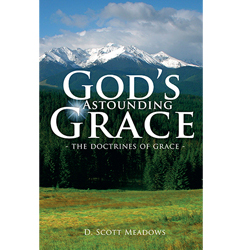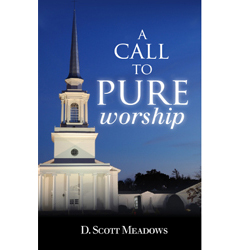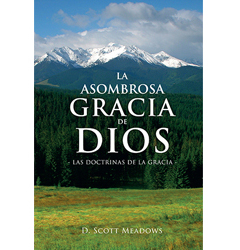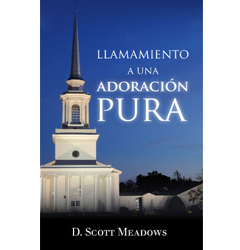

The Mystery of Godliness:
1. The Eternal Son of God
D. Scott Meadows
In our Reformed tradition, “There is no day commanded in Scripture to be kept holy under the gospel but the Lord’s Day, which is the Christian Sabbath. Festival days, vulgarly called Holy-days, having no warrant in the word of God, are not to be continued” (Westminster Directory for the Publick Worship of God, c. 1644). This repudiates the widespread religious use of a liturgical calendar (e.g., Lent, Palm Sunday, Maundy Thursday, Good Friday, Easter, Pentecost, Advent season, Christmas). We consider it unscriptural to incorporate these with Christian worship (2LCF 22.1).
Objections to preaching about Christ’s birth or resurrection on certain Sundays, however, may stem ironically from a superstitious regard to them. With all Christian liberty, then, I would present four lectures this month of December on the Incarnation. May the Lord deepen our understanding.
- Importance of Trinitarian Orthodoxy
Must one believe in God as Triune to be saved? The orthodox answer throughout church history is yes. So says the Athanasian Creed (5th-cent?). Its doctrine was believed centuries earlier. Opponents of the orthodox doctrine of the Trinity should not be considered true Christians (Unitarians, Mormons, Jehovah’s Witnesses, “Oneness Pentecostals,” etc.). We should also be alarmed by heterodox views like “Social Trinitarianism” that views the Father, Son, and Holy Spirit as a “divine family” and a model for human relationships.
Yet many who profess Trinitarian orthodoxy know very little about it. The axiom “one God in three Persons” has their approval, but if you ask them what it means for God to be one or how to distinguish the Persons, they have little idea. Without some considerable knowledge of this, we really cannot grasp very well the doctrine of the Incarnation, how “God was manifest in the flesh” (1 Tim 3.16) in Jesus Christ our Lord.
- Priority of God’s Being Over God’s Works (ontology before economy)
God’s acts in history (Creation and Providence) are indeed revelations of His Being (Rom 1.20). Jesus Christ is the fullest revelation of God in all of redemptive history (Jn 14.9; Heb 1.1-3). These are truths that tempt some to start with the Incarnation and work backward to theology proper (the doctrine of God Himself), from “economy” (what God DOES in history) to “ontology” (what God IS in Himself). This approach is misguided. First, all revelation from God is creaturely revelation pointing to God who is not creaturely. We must NEVER imagine any creaturely entailments about God Himself. Second, God revealed Himself (OT) apart from the Incarnation for thousands of years before the Incarnation (NT). Clearly the OT revelation of God preceded the NT revelation, laying a foundation for understanding it. Many have erred by suggesting that whatever Jesus is, God is, and whatever Jesus does, God does. But God as God is not a man and God as God does not die, for example. Rather, we must understand Christ in terms of the previous OT revelation of God, not vice versa. Remember the rule, “ontology before economy.” Statements God makes about His own Being in Himself (e.g., Exod 3.14) help us to appreciate the significance of revelation about God’s doing in creation and history (e.g., Gen 18.20, 21). In this example, reversing the order would conclude against omniscience and omnipresence (“Open Theism” actually holds this).
- Trinitarian Basics in Eternal Relations of Origin (ERO)
You all recognize as Christian orthodoxy the stock phrase, “one God in three Persons,” but what do Christians mean, in historical theology, by “one God”? And what by “three Persons”? If God is One, in what sense can there be Three? And if there are Three in any sense whatsoever, how can we honestly say He is One?
The church catholic (universal) has already worked out and declared answers to these and related questions from the earliest times in a manner consistent with Scripture, reason, and metaphysics (the branch of philosophy concerning first principles of being, among other topics). See the wonderfully concise and accurate declaration of it in 2LCF 2.3. We believe God is one Being, essence, substance, power, and eternity, and that this essence is undivided in nature and being. We also believe in three Persons—or, better, “three subsistences” (“an individual instance of a given essence,” Muller in DLGTT). These are “distinguished by several peculiar, relative properties, and personal relations,” and these properties and relations are the sole and orthodox way to distinguish the divine Persons. Any additional distinctions run afoul of the doctrine of One identical essence and the doctrine of divine simplicity (God without parts; 2LCF 2.1).
What, specifically, are those “several peculiar [belonging exclusively to], relative properties” and “personal relations?” What is it about the Father that makes Him the Father and not the Son or the Spirit, while being co-essential and co-equal in power and glory with the other two Persons? Likewise with the Son? And with the Holy Spirit?
The “several peculiar, relative properties” are paternity (of the Father alone), filiation (of the Son alone), and spiration (of the Spirit alone). The “personal relations” that follow are 1) the Father is “of none,” unbegotten; 2) the Son is eternally begotten of the Father, and 3) the Spirit eternally proceeds as the Spirit from the Father and the Son. We call these the “eternal relations of origin.” Know and believe all this to be orthodox. These statements, supported by Scripture, are about God’s Being in Himself (ontology) before considering God’s doing outside Himself (economy). The fact that in history the Father sent the Son into the world, and the Father and Son send the Spirit, fit but are not identical with ERO.
- The Eternal Son Is the Person of the Incarnation
Not the Father nor the Spirit, but the Son is the divine Person who is now united with human nature (Incarnation) in Jesus Christ our Lord. Yet the whole Trinity is at work in this. “Opera trinitatis ad extra indivisa sunt”: the external works of the Trinity are indivisible. Whatever God does in creation is the work of the Father, Son, and Holy Spirit because they absolutely share the indivisible divine Essence. Ω
All Rights Reserved. Used with permission. No part of this article may be used or reproduced in any manner whatsoever or translated without written permission.
The following books by D. Scott Meadows are available at Trinity Book Service and Cristianismo Histórico:
Ebook: A Call to Pure Worship | D. Scott Meadows




